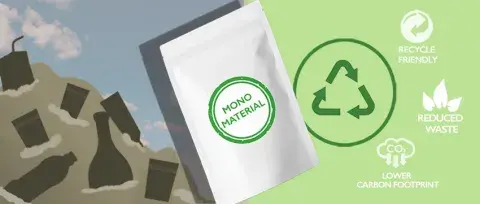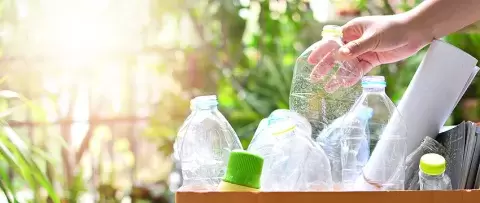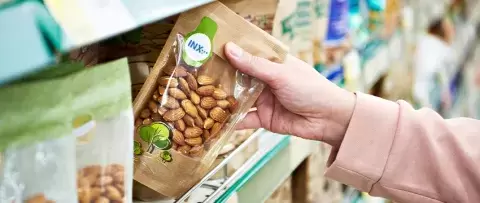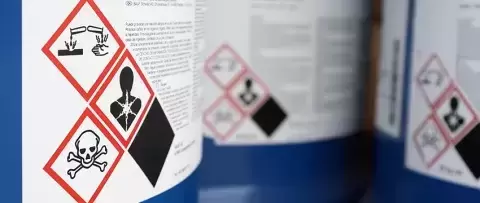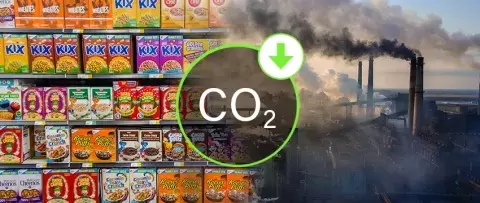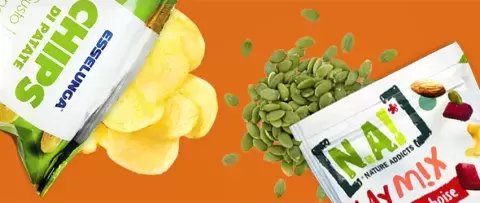How Inks Impact Recyclable Packaging
Many factors contribute to the growth of package recycling
The smart use of inks and coatings can contribute to a circular economy and help reduce material use, enable packaging reuse, and facilitate recycling. Regulatory policies, increased consumer awareness, and higher demand for sustainable packaging solutions have designers working to create packaging that looks great, protects what is inside, and is easy to recycle.
Inks and coatings play a significant role in package recycling. As a global manufacturer of high-performance printing inks and coatings for commercial, packaging, and digital print applications, we believe the more brand owners and print service providers understand how inks and coatings can enable the recycling process, the easier it will be to make more eco-friendly and recyclable products and packaging.
The Growth of Package Recycling
Packaging has always played an essential role in our lives. It serves multiple purposes: product protection, information display and marketing, to name a few. A crucial aspect of packaging design is to design with the end of life in mind, minimizing waste generation while still enabling consumers to efficiently utilize both the packaging and the product(s) it contains. As businesses increasingly prioritize environmental responsibility and promote sustainability, the global recyclable packaging market size is expected to reach over $46 million by 2032 and is growing at a CAGR of 4.9 percent from 2023 to 2032.[1]
There are many factors contributing to the growth of package recycling. NGOs dedicated to circular economies and sustainability are increasing their visibility and membership. For example, the Sustainable Packaging Coalition is a membership-based organization that believes in the power of industry to advance sustainable packaging through education, collaboration and action, and their membership encompasses the entire packaging value chain. Legislative and regulatory agencies, such as the United Nations Division for Sustainable Development Goals, have implemented regulations and initiated green packaging strategies to encourage sustainable packaging waste management and the development of reusable and recyclable materials. Additionally, consumers are more conscious of the environmental impact of their purchase decisions and are increasingly turning to sustainable packaging solutions. According to Trivium Packaging’s 2021 Global Buying Green Report, two-thirds (67%) of consumers consider it important that the products they buy are in recyclable packaging. The report is based on a survey conducted with Boston Consulting Group with 15,000 consumers in Europe, North America and South America.[2]
While these are not an exhaustive list of factors impacting the growth of the global recycling market, they are significant and illustrate why we don’t anticipate the packaging recycling market growth to slow down any time soon. At INX, we want consumers, brand owners, and customers to feel confident in their product choices, and that’s why we develop our products to have minimal impact on the environment without sacrificing machine, processing, and end-use product performance.
Choosing Inks and Coatings that are Recyclable
At INX, assisting brand owners and customers in making products easier to recycle and promoting the development of circular economies is one of our top priorities at INX. This often includes improving functional barriers to enable the use of mono-material packaging, the use of color-fast, washable inks that are easily removed in the recycling process, sustainably sourced natural-based inks, and inks and coatings that are designed to be highly robust for multiple re-use and returnable applications.
Washable inks make it easier to recycle plastic films, allowing for the recycling of recovered material. Traditionally, conventional printed inks may bleed during the caustic bath phase during the recycling process, discoloring the wash solution and contaminating the plastic, so it cannot be recycled as the same product. Washable inks are de-inkable from plastic packaging, and considering the advanced formulation, there is minimal bleed in the caustic wash solution and a reduction in recycled PET (polyethylene terephthalate) discoloration. New clear bottles can be made from the recovered material, contributing to a circular economy.
LINK
Genesis makes recycling plastic films used in packaging more efficient.
See if Genesis is right for you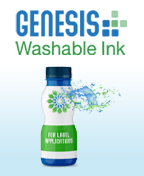
INX International’s Genesis™ washable inks for both gravure and flexographic printing are de-inkable from PET films for shrink sleeve labels and can also be used on OPP films for other labeling applications, making it easier to recycle plastic films used in packaging. Genesis GS is a patented technology that meets the stringent APR (Association of Plastic Recyclers) critical guidance for recycling PET bottles with shrink sleeves.
Gas barrier coatings have many benefits and are another way coatings can enable packaging recycling. For example, Ecostage GB-XA is an oxygen barrier coating that addresses food safety and preservation issues and improves sustainability and recycling efforts. It allows mono-material packaging to replace multi-layer packaging for specific food applications, making it easier to recycle the package. Transparent, it is chlorine and metal-free and a solid alternative to expensive barrier films. Mono-material packaging makes recycling easier, while Ecostage GB-XA helps maintain packaged good freshness similar to multi-material packaging.
Conclusion:
Recycling is a vital element of a brand's sustainability strategy, and ensuring package recyclability and reuse is crucial to developing a circular economy. We partner with our customers to enable recyclable packages that won't harm people or our planet when recycled correctly. Working together, we can take steps to move us closer toward a truly circular economy where resources are reused again and again instead of ending up languishing away in landfills and oceans across the world!
1Recyclable Packaging Market Size to Reach USD 46,150 Million by 2032, Precedence Research, August 4, 2023
2Consumer demand for sustainable packaging holds despite pandemic; FoodDive.com




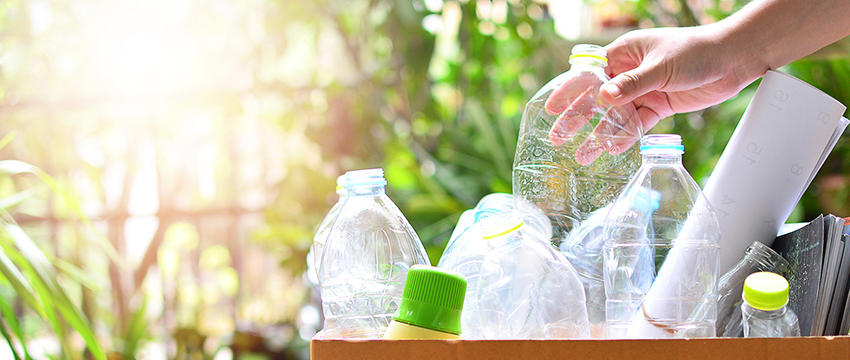

![Shrink Labels and Recycling [Shrink labellled bottles]](/sites/default/files/styles/large/public/2024-04/INX_shrink_blog850x360.jpg?itok=Qsx6qEqs)
